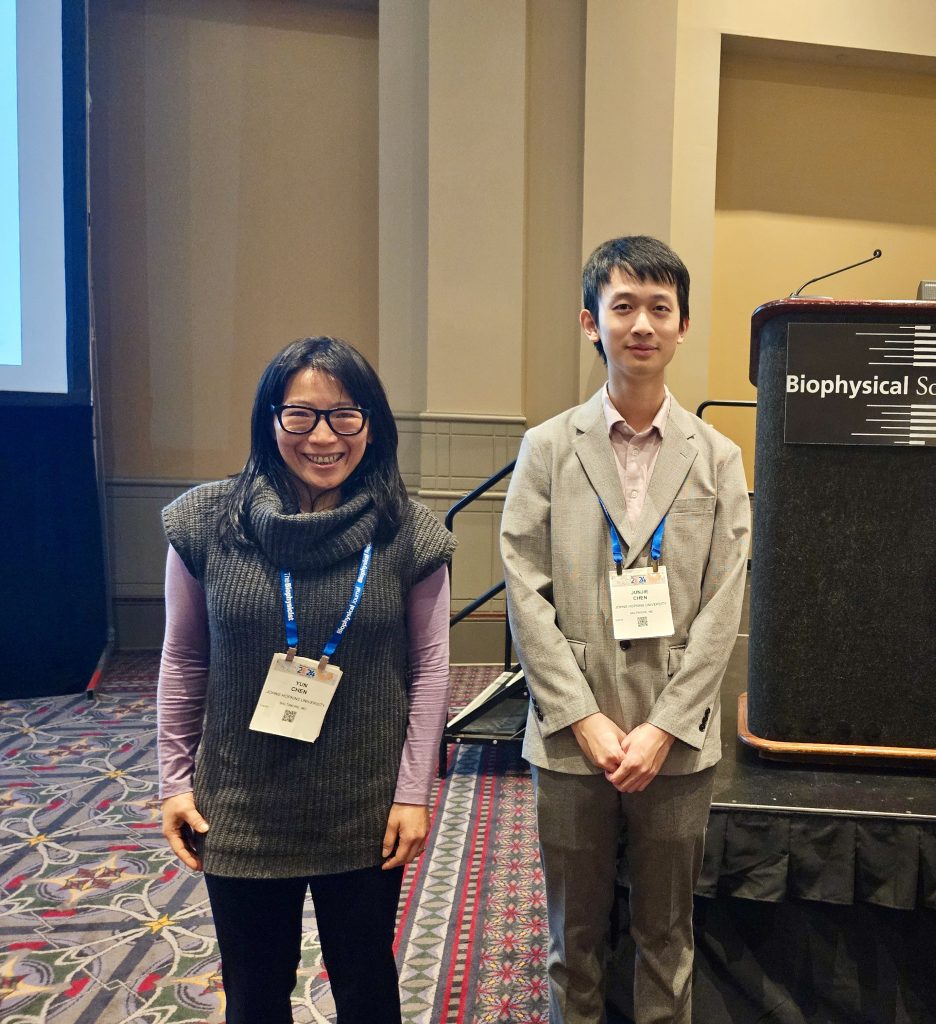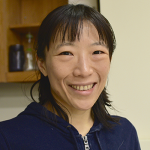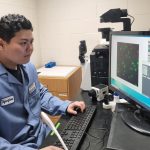PhD Student Chosen to Present, Chair at BPS Annual Meeting

Above photo: Junjie Chen (right) with advisor Yun Chen (left) at the Biophysical Annual Meeting in Philadelphia.
Junjie Chen, fifth-year PhD student of mechanical engineering, presented his research project, “Controlling Cell Behavior with Engineered Magnetosensitive Proteins,” at the Biophysical Society Annual Meeting, held Feb. 10-14 in Philadelphia. Chen was selected for the podium presentation out of thousands of submissions to talk about his innovative approaches to studying quantum mechanical effects.
“Our work got a lot of attention!” said Chen, who also chaired the Bioengineering Platform at the conference. “I exchanged notes with scientists around the world who are very excited about our vision of controlling cells with light and magnetic field. What we are studying is a small niche at the intersection of cell biology, quantum physics, and engineering, but the field surely seems to be picking up momentum.”
Junjie Chen is advised by Yun Chen, assistant professor of mechanical engineering, associate researcher at the Institute for NanoBioTechnology, and member of the Center for Cell Dynamics.
“Junjie is a talented experimentalist and insightful thinker, but most importantly he works very hard,” the advisor said. “He never becomes fazed even at the most challenging moment, he just pushes forward. He deserves the recognition.”
Yun Chen explained that the research team now can apply magnetic fields and light of different power to make cells behave differently. For example, cells will degrade proteins more if they project a strong magnetic field to the cell samples. The principle behind this technology is similar to the kind implemented in quantum computers.
“Usually we control cells with chemicals, such as drugs or growth factors, and cells start to react to the chemical triggers,” she said. “We think that using our technology, one day we can make cells do whatever we’d like them to do with magnetic fields, perhaps even more than what chemicals can accomplish.”
Story by Jonathan Deutschman and posted on the Department of Mechanical Engineering website.





